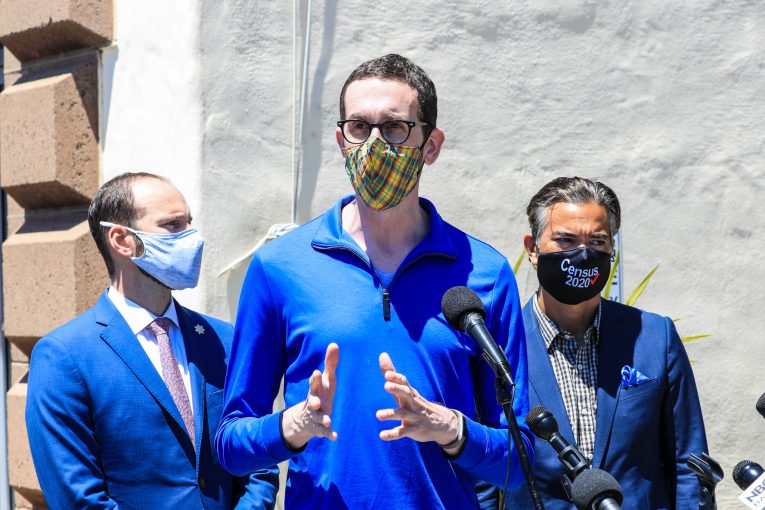

By The Vanguard Staff
SACRAMENTO – Senate Bill 1228, the Genetic Privacy for Sexual Assault Victims Act, was OK’d by the full California State Senate this week on a unanimous, bipartisan vote, now heading to the Assembly.
Authored by Senator Scott Wiener (D-San Francisco)’s with SF’s Assembly member Phil Ting as co-author, SB 1228 is sponsored by San Francisco District Attorney Chesa Boudin, the Prosecutors Alliance of California, and Black Women Revolt, an anti-domestic violence advocacy and resource group for Black women.
According to a statement from Wiener’s office, SB 1228 was introduced “following the discovery that a local law enforcement agency was retaining DNA collected from sexual assault survivors in its quality assurance database and then searching that database to incriminate survivors in unrelated crimes.”
“It’s already hard enough for sexual assault survivors to make the decision to come forward, report a crime, and undergo an invasive rape kit exam at the hospital,” said Senator Wiener.
The lawmaker added, “The last thing we need is to send a message to survivors that if they come forward, their DNA sample may be used against *them* in the future. We need to be clear and unequivocal that we support survivors and that providing a rape kit DNA sample will be a safe and respectful process.”
District Attorney Boudin made the situation public.
“My office exposed the shameful practice of local law enforcement agencies storing and searching DNA obtained from sexual assault survivors to attempt to incriminate them in unrelated crimes,” said District Attorney Boudin.
“We immediately called for an end to this practice and worked with Senator Wiener on this groundbreaking legislation to make sure no victim has their privacy rights violated in this way again throughout California.”
Boudin added, “We must do everything we can to eliminate barriers to survivors coming forward, and my office will continue to center survivors and advocate for their rights.”
“Since the discovery of this practice, advocates for sexual assault survivors and victim rights have widely condemned the practice and called for legislative action. Congressman Adam Schiff has called for a federal investigation,” noted Wiener.
“When victims report a sexual assault, they can consent to a sexual assault examination, also known as a rape kit. During this examination, biological evidence from bodily fluids, fingernail scrapings, and bite and scratch marks is collected from the victim’s body,” explained the bill’s supporters.
They add, “The victim submits their own DNA sample in order to exclude their DNA from an investigation. In addition, reference samples of those who have close contact with the survivor—such as consensual sexual partners, family members, or other people living in the same household—may be collected as well to differentiate their DNA from that of the perpetrator.”
Wiener’s office said, “SB 1228 protects sexual assault survivors and other victims by prohibiting the DNA profiles collected from victims from being used for any purpose other than aiding in identifying the perpetrator. Local law enforcement agencies will also be prohibited from retaining and then searching victim DNA to incriminate them in unrelated crimes.”
Wiener notes, “Federal law already prohibits the inclusion of victims’ DNA in the national Combined DNA Index System (CODIS). However, there is no corresponding California state law to prohibit local law enforcement databases from retaining victims’ profiles and searching them years later for entirely different purposes.”
“This legislation would remedy that by requiring DNA samples taken from victims to be used only for the sexual assault investigation. It would prohibit DNA samples from being included in any database that allows for a sample to be matched with DNA profiles obtained from crime scenes,” he added.
He said the legislation would also “instruct the Committee on Revision of the Penal Code to study whether additional steps are needed to protect the privacy of Californians who have submitted DNA samples to law enforcement, and determine whether a forensic oversight board is needed.”
SB 1228, said supporters, “protects sexual assault survivors and other victims by prohibiting the retention of DNA profiles collected from victims by local law enforcement agencies — including rape kits for sexual assault survivors. It also prohibits victims’ DNA from being used for any purpose other than identifying the perpetrator of the crime. Thus, a victim’s DNA could not be used in the future against the victim.
These protections, they claim, “help ensure the privacy of sexual assault survivors and promote public safety by encouraging survivors to report sexual violence. If a sexual assault survivor believes their rape kit DNA can be used against them in the future, they will have one more reason not to come forward and undergo an invasive rape kit examination.”
The author reports, “Sexual assault is significantly under-reported; fewer than a quarter of sexual assault survivors come forward to report to police. Of those survivors who do report, only a small percentage undergo the highly invasive process of sexual assault testing.
“Victims of sexual assault consent to their DNA collection for this purpose, not so that their DNA will be retained in a local law enforcement database permanently to be searched years later. Using victims’ DNA in order to potentially incriminate them in the future further dissuades sexual assault survivors from undergoing what is already a very difficult process.” 